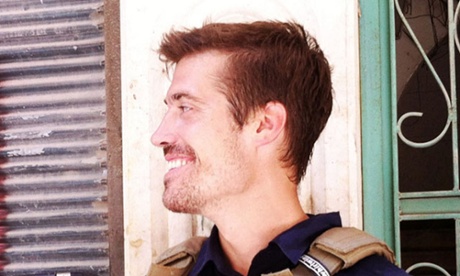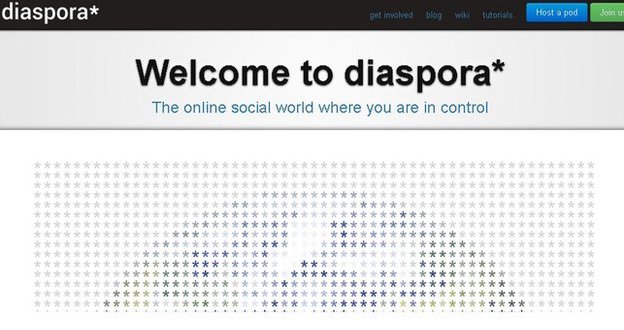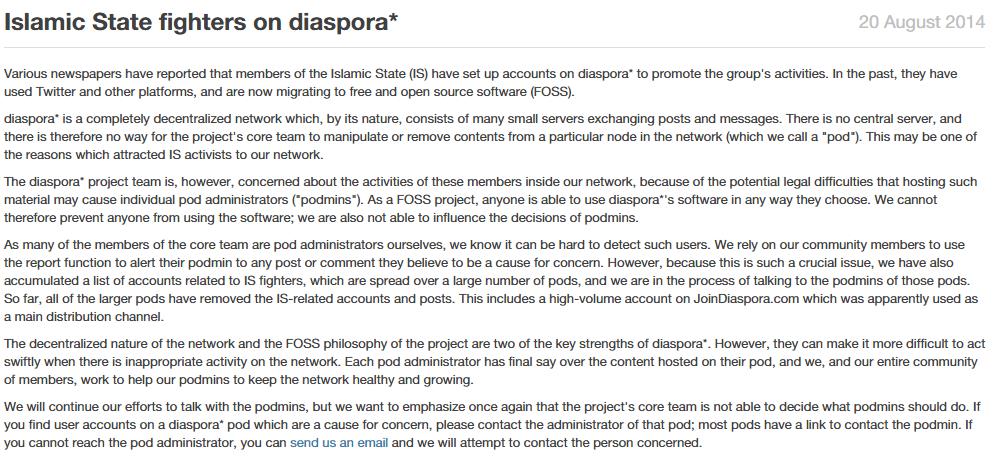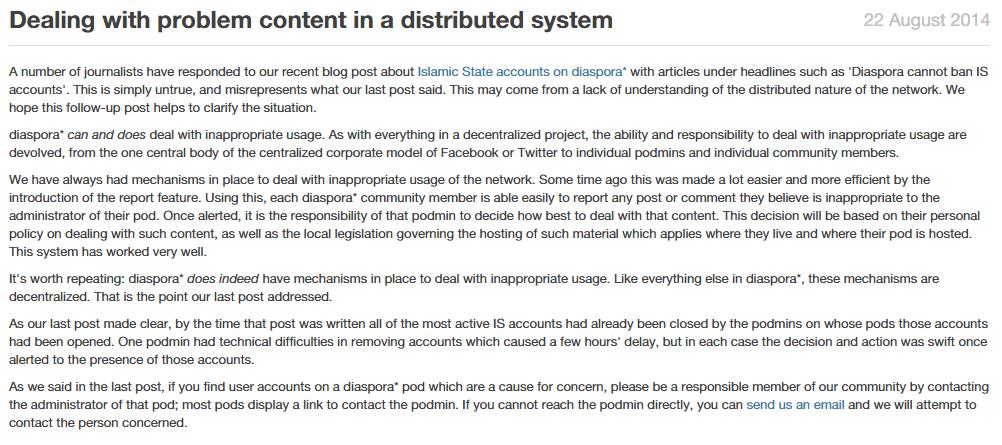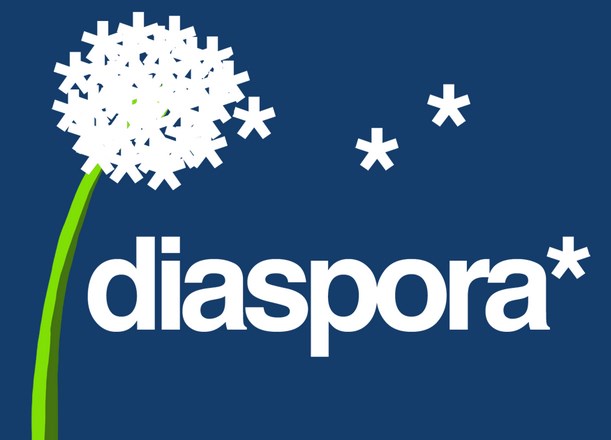After Being Banned On Twitter, Can ISIS Be Stopped On Other Social Media Platforms?
As Twitter shuts down access to various Islamic State fighters, members of the group are shifting their social media focus to the decentralized social network, diaspora*.
Following the beheading of James Foley by ISIS, Twitter moved to block graphic imagery and the accounts related to ISIS
Twitter has responded to the swell of opinion, and begun to remove all tweets embedding Isis’s video or screenshots taken from it. In a seemingly unprecedented step, Twitter CEO Dick Costolo, tweeted the following: "We have been and are actively suspending accounts as we discover them related to this graphic imagery. Thank you."
Twitter has deactivated numerous accounts run by Isis members and supporters in the last few weeks, including the @mujahid4life account which originally uploaded the video of Foley’s death, but it is well known that Isis has an extremely efficient social media operation.
The Guardian writers Patrick Kingsley and Carmen Fishwick have previously reported on their adept use of Justpaste.it and other hosting platforms. They even have a vocal press officer, Abu Mosa. As outrage spreads around the globe, Isis continue to adopt social media to further their cause of establishing an Islamic caliphate. The video of Foley’s execution came just a day after a video in which the group promised to “drown Americans in blood.” Politicians and government agencies have used Twitter to keep the public up to date on their thoughts and actions.
So the Islamic State is now trying to spread its social media war to an open-source decentralised social network called diaspora*
With Twitter cracking down on the posts and the accounts, the next step is to move to more anonymized networks. That's where Diaspora comes in. Originally created in 2010 as a response to Facebook's privacy policies, the service differs from traditional social networks in that it's completely decentralized. Isis accounts are now posting propaganda images, video and text via Diaspora sites.
In response, diaspora* this week said that it was trying to crack down on posts from ISIS, but the decentralised nature of its network means it takes longer than other networks
Built around the philosophies of decentralization, freedom, and privacy, Diaspora does not have a central server. Instead, the site consists of independently owned nodes, or pods, which interact to form a social network. These pods are controlled by individual pod administrators, or podmins.
Launched in 2010, Diaspora is unlike Twitter, Facebook and most other social networks which rely on a central database. Instead it has an open, decentralised platform, with an estimated 1 million users. Anyone can download use the Diaspora software to set up their own “pod”, which is hosted on a private server but connects to the rest of the Diaspora network to share posts, messages and media. As on Facebook or Twitter, users have to choose who they follow in order to see their posts.
Diaspora was originally marketed as a user-owned social networking alternative to Facebook, that respects user privacy and data, to “be whoever you want to be” and “interact with whomever you choose in whatever way you want”. In the now-deleted blogpost from September 2011, its American founders said that “... our distributed design means no big corporation will ever control Diaspora. Diaspora will never sell your social life to advertisers, and you won’t have to conform to someone’s arbitrary rules or look over your shoulder before you speak.”
For its part, the diaspora* Foundation, the group which runs the non-profit social network, posted a blog post explaining how its service works and the challenges involved with removing posts from ISIS
diaspora*'s blog post prompted a number of news sites, including BBC, to say that the decentralised platform could not effectively tackle the problem of ISIS content
The social network then fired back in a follow-up blog post, saying that was "simply untrue, and misrepresents what our last post said"
Diaspora pointed to the report feature, which allows community members to report to the administrator of their pod any post or comment they find inappropriate. Once alerted, the podmin becomes responsible for dealing with that content. As of Wednesday, all of the most-active IS accounts had already been closed by administrators, Diaspora said.
"One podmin had technical difficulties in removing accounts which caused a few hours' delay, but in each case the decision and action was swift once alerted to the presence of those accounts," Diaspora said.
 valuewalk.com
valuewalk.com
diaspora*'s full blog post explaining that they have mechanisms in place to deal with 'problem content'
diaspora* could have a problem if podmins don't cooperate
The question you’re probably asking is, what if someone had refused? What if one person, whether out of sympathies from the group or just an extreme sense of what free speech entails, decided that he or she wouldn’t close the ISIS accounts. If diaspora* has a way to deal with intractable podmins, it’s not clear what they are.
 valuewalk.com
valuewalk.com
If there is any silver lining in the way the IS is using decentralized networks such as Diaspora, it is that these networks tend to be very small and lack the network effect that makes services such as Twitter and Instagram effective propaganda tools. If Diaspora is able to successfully ban content from its most popular pods, the potential impact of that content on smaller pods will be even more minimal.
Also, systems such as diaspora* could serve as new places to build new social networks dedicated to pro-ISIS postings and further spread its propaganda
Taking it a step further, if ISIS started its own pod within the diaspora* network the other pods wouldn’t be able to shut it down, even if they could decide not to connect with it in the future. It also shows that the IS is not afraid to move to new types of networks and technologies.
 valuewalk.com
valuewalk.com
